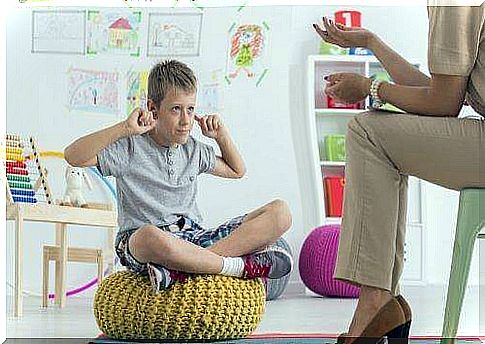Reward Children For Good Grades: Pros And Cons

Rewarding children for good grades can be both positive and negative. Many parents use reward systems to ensure that their children do well, but is it right to encourage children to get good grades with rewards?
It is very important to praise, applaud and congratulate children when they get good grades, but never to bribe them with gifts. Your children’s only great responsibility is to study, which is why you should pay attention to their merits and support them when they fail. But make sure the end goal is not a gift or reward.
Remember that if the children get good grades, you can instead celebrate with their favorite food, have a little coffee with the whole family or go to the cinema to see a movie.
Reward children for good grades: Pros and cons
Remember that material things are usually not the best way to reward children for their efforts. Teach them to work hard and they will feel proud of themselves instead.
Benefits
- Positive reinforcement: rewarding children for their efforts and giving them recognition in the form of an ice cream or an extra hour of computer games is positive. It is good to reinforce and encourage positive behavior, but you do not necessarily have to do it with gifts and rewards.
- Immediate results: behaviors can change quickly and effectively, with both negative and positive reinforcement, but it is important to make sure that this is not the only way to direct the children’s behavior or motivate them, because over time it will lose its effect.
- Discipline: Although rewards and privilege withdrawals can encourage discipline and good behavior in children, parents should never completely rely on it. It may work well in some situations, but what happens when there are no revoked privileges or rewards?
Cons

- Do not learn the value of true discipline: if you only instill discipline in your children based on rewards or prohibitions, they will not understand the true value of discipline. Instead, they will only listen to you to get a reward or not to lose privileges.
- Pursuing results just to get something: kids put rewards first, rather than learning. Maybe they do not want to get rid of privileges or they want a new toy. To do so, they can cheat or just memorize things without actually understanding them.
- The focus is only on rewards: if children only act in accordance with positive rewards and negative punishments, they may miss out on the true goal. Therefore, they concentrate more on the results of a test instead of what they do and learn.
Arguments for and against rewarding children for good grades
Argument for
- If you give your children a gift, they will learn that effort and perseverance give good results. Gifts help children stay motivated.
- But if you decide to give them something for their good grades, you need to evaluate whether it is appropriate to give them something material. Maybe you can congratulate them with a kiss or hug instead. Your children will be happy when they notice that you recognize their work and effort.
- Even if there is nothing wrong with rewarding your children’s efforts, it is best that they do not expect it. In this way, they learn that rewards are the result of hard work, and not something they will always receive. It makes them understand the importance of hard work and perseverance.
- You can also use gifts as an incentive when children start to deviate from the right path. Try to make sure they see the gifts as motivating. It is best for children to work hard every day, and not just when they will be rewarded for it.
Arguments against
- Children need to understand that studies are their responsibility and that good grades will help them have a good future. Do not let them get used to always being rewarded for their achievements.
- Gifts can be counterproductive when children think you have to reward them for their studies, even though it is their responsibility. As time goes on, they may just demand more and better gifts.
- Rewards cannot be used as ultimate goals. Children can interpret rewards and gifts as the ultimate goal of study. Therefore, you run the risk that they begin to believe that all semesters and academic years end with gifts. Giving gifts is no longer effective if they expect to receive them even when they are not performing well.
- Promising them gifts to pass in all subjects can also be negative, as it can make them feel unsuccessful if they do not succeed.
- Give them time and affection – it’s much more effective. The most valuable thing you can give your children are values and a solid foundation for their adult lives. Material things are volatile.

Children can sometimes deserve a gift because they received good grades, or revoked privileges because they did not behave. The important thing is to make sure that rewards are not the only thing that motivates them to get good grades, because that means that they do not look at good performance as their own rewards.









